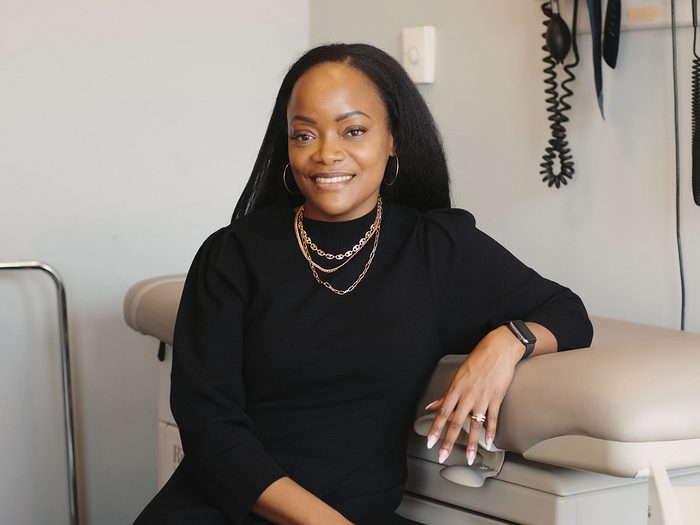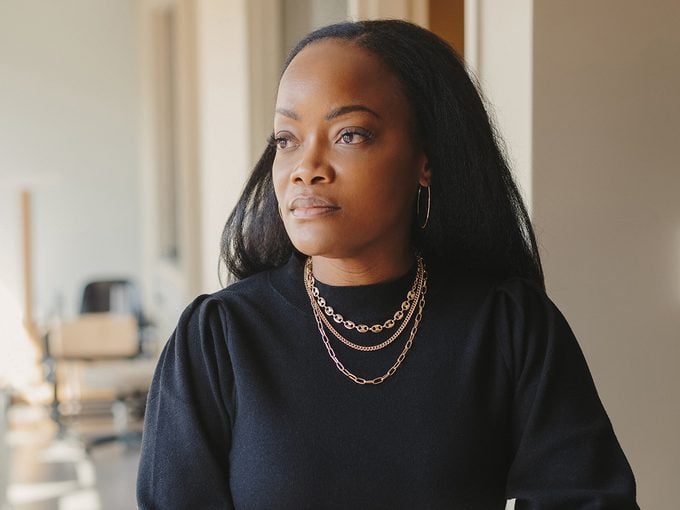Why Doctors Should Be Versed in Linguistics and Sociology

Education scientist Nicole Woods on making sure doctors don’t just know what to do—but why they’re doing it
A few years ago, Dr. Nicole Woods’ father needed a medical test. The physician was clear: no carbs beforehand. He rattled off a lengthy list of foods to avoid. Woods’ mother struggled to figure out what to make for dinner before landing on options like cassava and dasheen. “These are West Indian foods that are 100 percent carbs,” Woods says. “But they weren’t on the list.” Instead, it was heavy on squash, turnip and beets.
The doctor failed to take into consideration key factors, like her father’s background, his age and the likelihood he’d tuck into a plate of beets. “The physician didn’t think to himself, Who is this person and what does he normally eat?” she says. “They don’t do that unless they’re prompted to by their training.”
Plenty of us check out our doctors’ credentials online or take a surreptitious glance at the diploma on the wall, searching for some sort of confirmation of what they know. But we’re a little less focused on how exactly those doctors learn, which is where Woods’ work comes in. As an education scientist at Toronto’s University Health Network, she wants to expand the model of training for medical professionals, which tends to make a lot of assumptions about the default patient (middle-aged white guy) and even the default physician (same). However, when medical students are exposed to basic sciences like psychology and sociology, she’s found they’re far likelier to understand the human condition—and adjust their approach accordingly. Here, she explains why doctors need to think like chefs and why patients should channel their inner toddler.
(Related: “The Uncertainty Was a Big Piece. And I Couldn’t Get Answers”)

When it comes to med school, what sorts of science has the curriculum generally focused on?
Historically, the way we’ve trained students is to take reasonable guesses about what types of knowledge a physician is going to need, and then work our way backwards, designing programs that provide that knowledge. So it’s largely biochemistry, anatomy, maybe a little bit of physics. But it’s been a very limited definition of what science counts in medicine.
What are the implications of that?
It limits what we can do for our patients. Limited sources of knowledge mean limited opportunities for us to really understand what’s happening with our patients. That’s why we want to bring in concepts from psychology, from sociology, from kinesiology, from linguistics. They help people think through clinical problems. My work really focuses on making sure that students don’t just know what to do. They also know why they’re doing it.
How does linguistics, for example, help with clinical reasoning?
I can easily give a physician a checklist for breaking bad news. The challenge is that not every patient is the same and not every moment is the same—so a checklist isn’t going to cut it. A bit of linguistics will help you understand not just the steps you take but the words you say, and why certain words are more helpful. If I understand the why, and I have a patient in front of me for whom the checklist doesn’t apply, then I can modify it and make it work for them.
I’ve had experiences with my own family physician where it was clear to me that they didn’t appreciate my understanding of science. So as they were describing to me potential complications in my pregnancy, they were doing so at a level that didn’t reflect what I could bring to the conversation. Again, they were probably going through their checklist. But what they hadn’t done was think carefully about their choice of words.
(Related: “For All Those Years, No One Told Me Anything”)
So understanding the why allows you to improvise better in a medical setting?
Exactly. It allows you to make a responsible choice about when you need to adjust and innovate. Because you can’t do that safely if you don’t really understand why you were doing something in the first place, right? A colleague of mine uses a cooking example: if you’re missing a bay leaf, but you don’t know what it’s meant to add to a recipe, you won’t know how to replace it.
What do bay leaves even do?
I couldn’t tell you! So I’m stuck. But someone who knows what it’s supposed to do in the first place might be able to make a reasonable substitution. It’s very, very similar.
How has the pandemic changed your work’s focus?
Pre-pandemic, we were thinking a lot about changes in the science itself, helping physicians keep up with this onslaught of new technologies. But then the pandemic hit and some of the science stalled. People working in health care right now are absolutely exhausted. And what used to be routine care has become so complicated. Take just a basic family doctor visit—now you have to figure out how to do a virtual physical examination. That takes a basic skill that physicians would have been learning from day one in medical school and makes it incredibly complicated. So forget the newfangled robot thing: we’re going to have to think much more about communication, collaboration and some of these touchpoints of virtual care.
There’s also been an explosion of interest over the pandemic in adaptive expertise. And what that concept essentially says is that you’re not an expert because of the knowledge in your head, but because you can use it to create new knowledge in the face of novelty and ambiguity. It’s recognizing when your knowledge applies, and when you have to be creative in the moment.
It does feel that expertise has been somewhat denigrated during the pandemic.
Yeah, it’s difficult. I try very hard through all my work to focus on what people bring to the table and not who they are. We certainly want to value lived experience. But lived experience is not expertise.
We’ve been inundated with information over the past two years, and some of it is really sticky—like washing our hands to ward off Covid, even though we now know the virus is airborne. Why can’t we shake that early information?
Education science is all about using those first academic disciplines, and you’ve just brought in some basic cognitive psychology. The first thing in any list is very memorable. The last thing in any list? Very, very memorable. So the fear that we were experiencing at the start of the pandemic, when we were told to wash our hands—that emotion makes the information very difficult to forget. The problem is, it might not be accurate.
How can patients become better learners?
Patients ask a lot of what questions: What is this? What’s going to happen tomorrow? What do I do next? I think that patients can be better learners by asking more why questions: Why does this happen? Why do I need to do that? We call it the toddler rule, because toddlers are going to ask why, why, why? until you’re like, please stop. In our lab, everyone gets two why questions. Then you have to go read a book.




